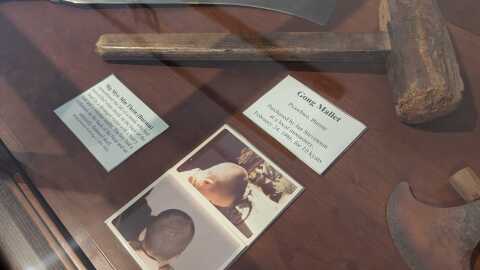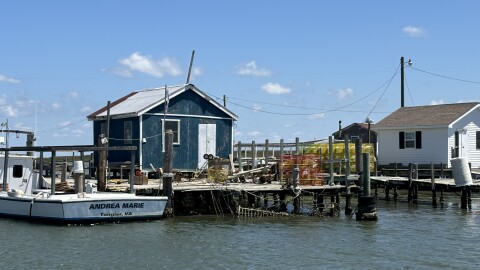Citizen science has previously spurred action by the Richmond government.
-
Groundhog Day is a “cross-quarter day” on the celestial calendar. Cross quarter days are mid-way points between the Solstices and Equinoxes. These days are associated with many familiar holidays whose astronomical roots have largely been forgotten.
-
For nearly 60 years, this office has explored the nature of consciousness.
-
Partner company hopes to have the project up and running by the 2030s.
-
A panel of experts could determine if “pattern of misconduct” occurred.
-
An ongoing review of a former state crime lab analyst’s work uncovered the error.
-
Former Science Museum of Virginia scientist captures Greek family recipes in new cookbook.
-
Early in life, the protein Reelin helps assemble the brain. Later on, it appears to protect the organ from Alzheimer's and other threats to memory and thinking.
-
Head of Harrison Family Translational Research Center discusses advances in treatment.
-
The island's lost two-thirds of its land mass since 1850 and climate change is making the problem worse.
-
Dr. Robert Winn says improved screening methods, vaccines could help wipe out the disease.
-
In human history, the sighting of comets has often been associated with a lot of doom and gloom like turbulent political tensions and uncontrollable diseases! T
-
Science is often a great way to find solutions to modern day issues. We've figured out how to easily communicate with folks around the world, 3-D print parts for a space station, and through many contributions have increased the quality of life in many places around the globe. The novel coronavirus though has given us a whole new challenge. Top experts are busy working on a vaccine, but till then what do scientists around the world suggest we do?
-
As life on Earth continues to carry on we still find occasional moments in the night to look up at the blanket of stars above us and wonder if any life is out there looking back at us wondering the same thing
-
Researchers at the University of Virginia School of Medicine are developing a new technique using focused ultrasound and a fluorescent drug together, to kill cells glioblastoma, the deadliest brain tumor. VPM’s Charles Fishburne talked with neurosurgeon Dr. Jason Sheehan about the disease and his promising new approach.
-
The global pandemic currently makes it so we can’t go visit exotic places, but sometimes pieces of the exotic places come to us! A whole bunch of Saharan dust is heading our way. Will there be Saharan dust in the weather?
-
The Eviction Lab at Princeton University unveiled an online tool on Friday that monitors eviction filings in 10 U.S. cities — including Richmond. Updated weekly, it compares the numbers of eviction filings to those from 2016, which data shows has significantly declined since the start of the pandemic.
-
In many ways, the environment was an unexpected beneficiary of the pandemic. What lessons can we learn from our response to the coronavirus, and can we follow through on them to address other global issues?
-
Over the years many housing policies and planning practices have shaped how neighborhoods and cities in our nation have grown. Sadly, many of these decisions were made using unfairly derived metrics and survey results. Now science is being used to show the relationships between various neighborhoods, their historic policies, and their current quality of life.
-
This has come with some public criticism including how some folks can’t seem to recognize each other without their noses and mouths being clearly visible.
-
There’s a lot of history being made these days. Cultural issues, global health concerns, and many world wide infrastructural concerns can be seen all over the news. With all these important events happening science too is making some history
























